Small Press Points: Sundress Publications

Originally an umbrella site for literary journals, this book publisher looks to the wider writing community for inspiration, camaraderie, and collaborators in the art that it makes and promotes.
Jump to navigation Skip to content
Articles from Poet & Writers Magazine include material from the print edition plus exclusive online-only material.

Originally an umbrella site for literary journals, this book publisher looks to the wider writing community for inspiration, camaraderie, and collaborators in the art that it makes and promotes.

When you venture to inhabit identities and communities beyond your experience, seek people and places to ground your work. A journalist and novelist explains how research skills help fortify one’s imagined realities.
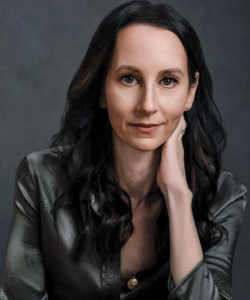
Books centering mothers are often lumped into one category by the publishing industry, flattening the nuanced and varied experiences of this group into a one-size-fits-all niche. A memoirist asks the industry to do better.

Write a poem that uses the metaphor of a bridge to represent a complex family dynamic, a short story that reconceptualizes historical fiction, or a lyrical essay that reflects on the stages of returning to a former self.

Rosie Stewart, the new senior manager of public policy at Penguin Random House’s Intellectual Freedom Taskforce, shares some context for her new role, advice for those who want to get involved, and her hope for the future.
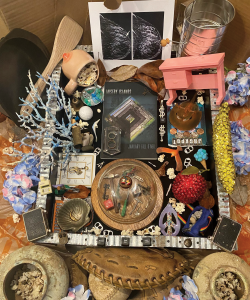
Flower Conroy’s elaborate three-dimensional installations, fashioned from found and crafted objects, masterfully evoke the spirit of each book the artist chooses and carefully communicate her reverence for literature.

“Because the flip side of uncertainty is an invitation into mystery. And the reward for wading through mystery is transformation.” —Rebe Huntman, author of My Mother in Havana: A Memoir of Magic & Miracle.

Oral historian Nyssa Chow considers the nested memories she belongs to, and invites readers to do the same.
Writers share how they approach the writing life where they live, their personal points of view on the literary community (both small and large) and their place within it, and what resources are available to them as writers who don’t live in a metropolitan area.
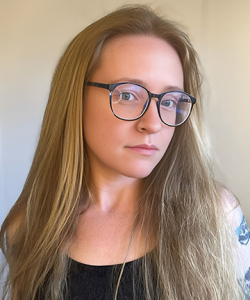
“Nothing makes a clunky sentence more obvious than saying it out loud.” —Margie Sarsfield, author of Beta Vulgaris

Oral historian Nyssa Chow considers how small routines and rituals tell larger stories.
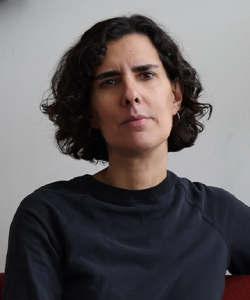
“If a story gathers force by what it accrues, this kind of ending is a letting go.” —Corinna Vallianatos, author of Origin Stories
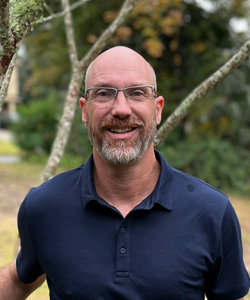
“Don’t worry about aesthetic categories or limitations. Have fun.” —Jonathan Fink, author of Don’t Do It—We Love You, My Heart?
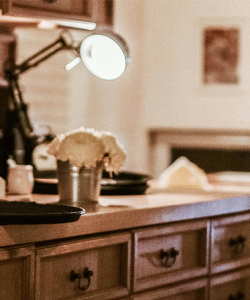
Writer and scholar Rebecca Rainof offers advice on writing about family by considering how “pockets of place can convey a larger sense of home.”

“All you can do is pay attention to the process, the practice, and see what it does to you, what it does to the people around you, what it does to your dear readers.” —Latif Askia Ba, author of The Choreic Period

“Take your time. And indulge in the messiness, the privacy, the anxieties of the writing process.” —Aria Aber, author of Good Girl

Writer and scholar Rebecca Rainof offers advice on how to write about family by considering lessons learned over a lifetime.

“Your e-mails are daily writings. Your grocery lists; your text messages; your poetry magnets on the fridge; your annotations in the margins of your books.” —Kayleb Rae Candrilli, author of Winter of Worship

Writer and scholar Rebecca Rainof offers advice on how to write about family by imagining fictive dialogues.

Ten authors answer the question: What’s the best piece of writing advice you’ve ever received?

The author of Mothertrucker: Finding Joy on the Loneliest Road in America (Little A, 2021) offers advice on how to make a personal narrative resonate with the wider world.

When “normal” fails, embrace the strangeness and possibility the night can provide. A renowned fiction writer recounts the uncommon delight of inviting others to join her in writing under the moon.
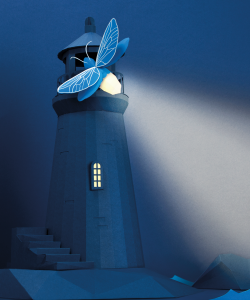
When it seems impossible to find a way into writing, a robust community can be a beam of light in the darkness. The author of Ghost Hour describes the ways that a new writers group helped rekindle and guide her creative practice.

Many things bring light; some bring just enough to keep the monsters at bay. When ideal circumstances are scarce, focus on the dim, constant light that helps you get the work done, even if it comes from an unusual source.
Writing and revising often seem to hinge on bringing new possibilities into focus. A poet considers the camera obscura as a metaphor for how an inversion of the light can transform and attune us to the moment.